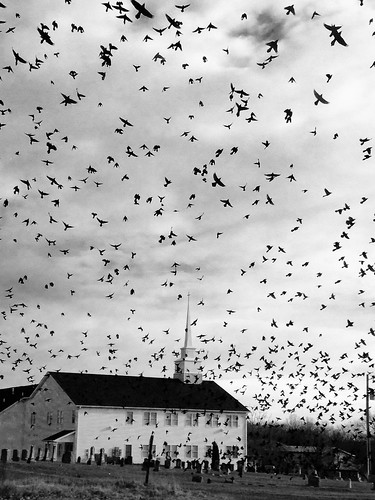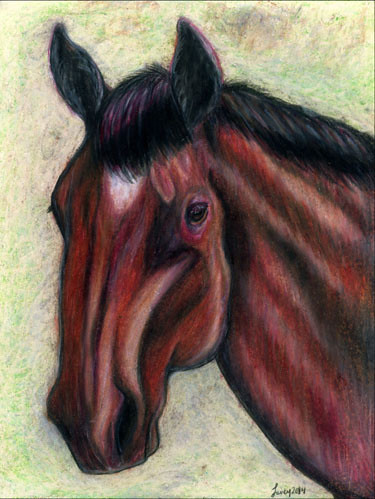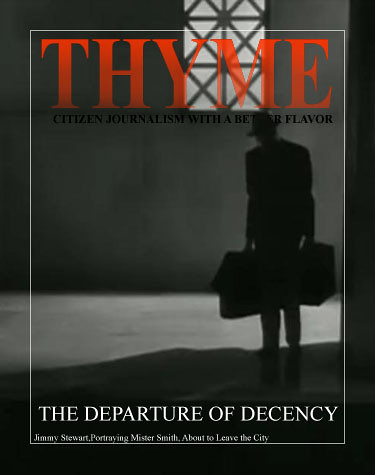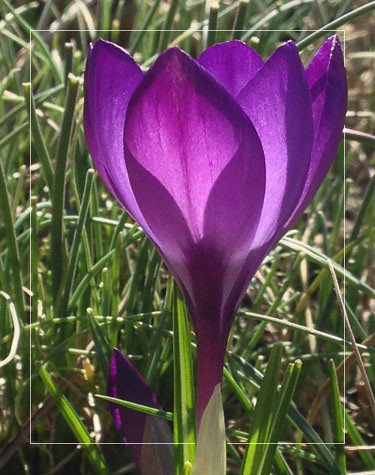Citizen Journalism with a Better Flavor
 Volume XI, Issue V
The Snow Queen
by Hans Christian Andersen
FOURTH STORY. The Prince and Princess
G
Volume XI, Issue V
The Snow Queen
by Hans Christian Andersen
FOURTH STORY. The Prince and Princess
Gerda was obliged to rest herself again, when, exactly opposite to her, a large Raven came hopping over the white snow. He had long been looking at Gerda and shaking his head; and now he said, "Caw! Caw!" Good day! Good day! He could not say it better; but he felt a sympathy for the little girl, and asked her where she was going all alone. The word "alone" Gerda understood quite well, and felt how much was expressed by it; so she told the Raven her whole history, and asked if he had not seen Kay.
The Raven nodded very gravely, and said, "It may be--it may be!"
What, do you really think so?" cried the little girl; and she nearly squeezed the Raven to death, so much did she kiss him.
Gently, gently," said the Raven. "I think I know; I think that it may be little Kay. But now he has forgotten you for the Princess."
Does he live with a Princess?" asked Gerda.
Yes--listen," said the Raven; "but it will be difficult for me to speak your language. If you understand the Raven language I can tell you better."
No, I have not learnt it," said Gerda; "but my grandmother understands it, and she can speak gibberish too. I wish I had learnt it."
No matter," said the Raven; "I will tell you as well as I can; however, it will be bad enough." And then he told all he knew.
In the kingdom where we now are there lives a Princess, who is extraordinarily clever; for she has read all the newspapers in the whole world, and has forgotten them again--so clever is she. She was lately, it is said, sitting on her throne--which is not very amusing after all--when she began humming an old tune, and it was just, 'Oh, why should I not be married?' "That song is not without its meaning,' said she, and so then she was determined to marry; but she would have a husband who knew how to give an answer when he was spoken to--not one who looked only as if he were a great personage, for that is so tiresome. She then had all the ladies of the court drummed together; and when they heard her intention, all were very pleased, and said, 'We are very glad to hear it; it is the very thing we were thinking of.' You may believe every word I say, said the Raven; "for I have a tame sweetheart that hops about in the palace quite free, and it was she who told me all this.
The newspapers appeared forthwith with a border of hearts and the initials of the Princess; and therein you might read that every good-looking young man was at liberty to come to the palace and speak to the Princess; and he who spoke in such wise as showed he felt himself at home there, that one the Princess would choose for her husband.
Yes, Yes," said the Raven, "you may believe it; it is as true as I am sitting here. People came in crowds; there was a crush and a hurry, but no one was successful either on the first or second day. They could all talk well enough when they were out in the street; but as soon as they came inside the palace gates, and saw the guard richly dressed in silver, and the lackeys in gold on the staircase, and the large illuminated saloons, then they were abashed; and when they stood before the throne on which the Princess was sitting, all they could do was to repeat the last word they had uttered, and to hear it again did not interest her very much. It was just as if the people within were under a charm, and had fallen into a trance till they came out again into the street; for then--oh, then--they could chatter enough. There was a whole row of them standing from the town-gates to the palace. I was there myself to look," said the Raven. "They grew hungry and thirsty; but from the palace they got nothing whatever, not even a glass of water. Some of the cleverest, it is true, had taken bread and butter with them: but none shared it with his neighbor, for each thought, 'Let him look hungry, and then the Princess won't have him."'
But Kay--little Kay," said Gerda, "when did he come? Was he among the number?"
Patience, patience; we are just come to him. It was on the third day when a little personage without horse or equipage, came marching right boldly up to the palace; his eyes shone like yours, he had beautiful long hair, but his clothes were very shabby."
That was Kay," cried Gerda, with a voice of delight. "Oh, now I've found him!" and she clapped her hands for joy.
He had a little knapsack at his back," said the Raven.
No, that was certainly his sledge," said Gerda; "for when he went away he took his sledge with him."
That may be," said the Raven; "I did not examine him so minutely; but I know from my tame sweetheart, that when he came into the court-yard of the palace, and saw the body-guard in silver, the lackeys on the staircase, he was not the least abashed; he nodded, and said to them, 'It must be very tiresome to stand on the stairs; for my part, I shall go in.' The saloons were gleaming with lustres--privy councillors and excellencies were walking about barefooted, and wore gold keys; it was enough to make any one feel uncomfortable. His boots creaked, too, so loudly, but still he was not at all afraid."
That's Kay for certain," said Gerda. "I know he had on new boots; I have heard them creaking in grandmama's room."
Yes, they creaked," said the Raven. "And on he went boldly up to the Princess, who was sitting on a pearl as large as a spinning-wheel. All the ladies of the court, with their attendants and attendants' attendants, and all the cavaliers, with their gentlemen and gentlemen's gentlemen, stood round; and the nearer they stood to the door, the prouder they looked. It was hardly possible to look at the gentleman's gentleman, so very haughtily did he stand in the doorway."
It must have been terrible," said little Gerda. "And did Kay get the Princess?"
Were I not a Raven, I should have taken the Princess myself, although I am promised. It is said he spoke as well as I speak when I talk Raven language; this I learned from my tame sweetheart. He was bold and nicely behaved; he had not come to woo the Princess, but only to hear her wisdom. She pleased him, and he pleased her."
Yes, yes; for certain that was Kay," said Gerda. "He was so clever; he could reckon fractions in his head. Oh, won't you take me to the palace?"
That is very easily said," answered the Raven. "But how are we to manage it? I'll speak to my tame sweetheart about it: she must advise us; for so much I must tell you, such a little girl as you are will never get permission to enter."
Oh, yes I shall," said Gerda; "when Kay hears that I am here, he will come out directly to fetch me."
Wait for me here on these steps," said the Raven.He moved his head backwards and forwards and flew away.
The evening was closing in when the Raven returned. "Caw --caw!" said he. "She sends you her compliments; and here is a roll for you. She took it out of the kitchen, where there is bread enough. You are hungry, no doubt. It is not possible for you to enter the palace, for you are barefooted: the guards in silver, and the lackeys in gold, would not allow it; but do not cry, you shall come in still. My sweetheart knows a little back stair that leads to the bedchamber, and she knows where she can get the key of it."
And they went into the garden in the large avenue, where one leaf was falling after the other; and when the lights in the palace had all gradually disappeared, the Raven led little Gerda to the back door, which stood half open.
Oh, how Gerda's heart beat with anxiety and longing! It was just as if she had been about to do something wrong; and yet she only wanted to know if little Kay was there. Yes, he must be there. She called to mind his intelligent eyes, and his long hair, so vividly, she could quite see him as he used to laugh when they were sitting under the roses at home. "He will, no doubt, be glad to see you--to hear what a long way you have come for his sake; to know how unhappy all at home were when he did not come back."
Oh, what a fright and a joy it was!
They were now on the stairs. A single lamp was burning there; and on the floor stood the tame Raven, turning her head on every side and looking at Gerda, who bowed as her grandmother had taught her to do.
My intended has told me so much good of you, my dear young lady," said the tame Raven. "Your tale is very affecting. If you will take the lamp, I will go before. We will go straight on, for we shall meet no one."
I think there is somebody just behind us," said Gerda; and something rushed past: it was like shadowy figures on the wall; horses with flowing manes and thin legs, huntsmen, ladies and gentlemen on horseback.
They are only dreams," said the Raven. "They come to fetch the thoughts of the high personages to the chase; 'tis well, for now you can observe them in bed all the better. But let me find, when you enjoy honor and distinction, that you possess a grateful heart."
Tut! That's not worth talking about," said the Raven of the woods.
They now entered the first saloon, which was of rose-colored satin, with artificial flowers on the wall. Here the dreams were rushing past, but they hastened by so quickly that Gerda could not see the high personages. One hall was more magnificent than the other; one might indeed well be abashed; and at last they came into the bedchamber. The ceiling of the room resembled a large palm-tree with leaves of glass, of costly glass; and in the middle, from a thick golden stem, hung two beds, each of which resembled a lily. One was white, and in this lay the Princess; the other was red, and it was here that Gerda was to look for little Kay. She bent back one of the red leaves, and saw a brown neck. Oh! that was Kay! She called him quite loud by name, held the lamp towards him--the dreams rushed back again into the chamber--he awoke, turned his head, and--it was not little Kay!
The Prince was only like him about the neck; but he was young and handsome. And out of the white lily leaves the Princess peeped, too, and asked what was the matter. Then little Gerda cried, and told her her whole history, and all that the Ravens had done for her.
Poor little thing!" said the Prince and the Princess. They praised the Ravens very much, and told them they were not at all angry with them, but they were not to do so again. However, they should have a reward. "Will you fly about here at liberty," asked the Princess; "or would you like to have a fixed appointment as court ravens, with all the broken bits from the kitchen?"
And both the Ravens nodded, and begged for a fixed appointment; for they thought of their old age, and said, "It is a good thing to have a provision for our old days."
And the Prince got up and let Gerda sleep in his bed, and more than this he could not do. She folded her little hands and thought, "How good men and animals are!" and she then fell asleep and slept soundly. All the dreams flew in again, and they now looked like the angels; they drew a little sledge, in which little Kay sat and nodded his head; but the whole was only a dream, and therefore it all vanished as soon as she awoke.
The next day she was dressed from head to foot in silk and velvet. They offered to let her stay at the palace, and lead a happy life; but she begged to have a little carriage with a horse in front, and for a small pair of shoes; then, she said, she would again go forth in the wide world and look for Kay.
Shoes and a muff were given her; she was, too, dressed very nicely; and when she was about to set off, a new carriage stopped before the door. It was of pure gold, and the arms of the Prince and Princess shone like a star upon it; the coachman, the footmen, and the outriders, for outriders were there, too, all wore golden crowns. The Prince and the Princess assisted her into the carriage themselves, and wished her all success. The Raven of the woods, who was now married, accompanied her for the first three miles. He sat beside Gerda, for he could not bear riding backwards; the other Raven stood in the doorway,and flapped her wings; she could not accompany Gerda, because she suffered from headache since she had had a fixed appointment and ate so much. The carriage was lined inside with sugar-plums, and in the seats were fruits and gingerbread.
Farewell! Farewell!" cried Prince and Princess; and Gerda wept, and the Raven wept. Thus passed the first miles; and then the Raven bade her farewell, and this was the most painful separation of all. He flew into a tree, and beat his black wings as long as he could see the carriage, that shone from afar like a sunbeam.
(to be continued)
 A flock of birds rises at Jerusalem Chapel in Augusta County, Virginia.
Of Witches and Wardrobes
THE FANTASTIC IMAGINATION
by George MacDonald (1893)
T
A flock of birds rises at Jerusalem Chapel in Augusta County, Virginia.
Of Witches and Wardrobes
THE FANTASTIC IMAGINATION
by George MacDonald (1893)
THAT we have in English no word corresponding to the German
Mährchen, drives us to use the word
Fairytale, regardless of the fact that the tale may have nothing to do with any sort of fairy. The old use of the word Fairy, by Spenser at least, might, however, well be adduced, were justification or excuse necessary where need must.
Were I asked, what is a fairytale? I should reply, Read Undine: that is a fairytale; then read this and that as well, and you will see what is a fairytale. Were I further begged to describe the fairytale, or define what it is, I would make answer, that I should as soon think of describing the abstract human face, or stating what must go to constitute a human being. A fairytale is just a fairytale, as a face is just a face; and of all fairytales I know, I think Undine the most beautiful.
Many a man, however, who would not attempt to define a man, might venture to say something as to what a man ought to be: even so much I will not in this place venture with regard to the fairytale, for my long past work in that kind might but poorly instance or illustrate my now more matured judgment. I will but say some things helpful to the reading, in right-minded fashion, of such fairytales as I would wish to write, or care to read.
Some thinkers would feel sorely hampered if at liberty to use no forms but such as existed in nature, or to invent nothing save in accordance with the laws of the world of the senses; but it must not therefore be imagined that they desire escape from the region of law. Nothing lawless can show the least reason why it should exist, or could at best have more than an appearance of life.
The natural world has its laws, and no man must interfere with them in the way of presentment any more than in the way of use; but they themselves may suggest laws of other kinds, and man may, if he pleases, invent a little world of his own, with its own laws; for there is that in him which delights in calling up new forms--which is the nearest, perhaps, he can come to creation. When such forms are new embodiments of old truths, we call them products of the Imagination; when they are mere inventions, however lovely, I should call them the work of the Fancy: in either case, Law has been diligently at work.
His world once invented, the highest law that comes next into play is, that there shall be harmony between the laws by which the new world has begun to exist; and in the process of his creation, the inventor must hold by those laws. The moment he forgets one of them, he makes the story, by its own postulates, incredible. To be able to live a moment in an imagined world, we must see the laws of its existence obeyed. Those broken, we fall out of it. The imagination in us, whose exercise is essential to the most temporary submission to the imagination of another, immediately, with the disappearance of Law, ceases to act. Suppose the gracious creatures of some childlike region of Fairyland talking either cockney or Gascon! Would not the tale, however lovelily begun, sink at once to the level of the Burlesque--of all forms of literature the least worthy? A man's inventions may be stupid or clever, but if he do not hold by the laws of them, or if he make one law jar with another, he contradicts himself as an inventor, he is no artist. He does not rightly consort his instruments, or he tunes them in different keys. The mind of man is the product of live Law; it thinks by law, it dwells in the midst of law, it gathers from law its growth; with law, therefore, can it alone work to any result. Inharmonious, unconsorting ideas will come to a man, but if he try to use one of such, his work will grow dull, and he will drop it from mere lack of interest. Law is the soil in which alone beauty will grow; beauty is the only stuff in which Truth can be clothed; and you may, if you will, call Imagination the tailor that cuts her garments to fit her, and Fancy his journeyman that puts the pieces of them together, or perhaps at most embroiders their button-holes. Obeying law, the maker works like his creator; not obeying law, he is such a fool as heaps a pile of stones and calls it a church.
In the moral world it is different: there a man may clothe in new forms, and for this employ his imagination freely, but he must invent nothing. He may not, for any purpose, turn its laws upside down. He must not meddle with the relations of live souls. The laws of the spirit of man must hold, alike in this world and in any world he may invent. It were no offence to suppose a world in which everything repelled instead of attracted the things around it; it would be wicked to write a tale representing a man it called good as always doing bad things, or a man it called bad as always doing good things: the notion itself is absolutely lawless. In physical things a man may invent; in moral things he must obey--and take their laws with him into his invented world as well.
You write as if a fairytale were a thing of importance: must it have a meaning?"
It cannot help having some meaning; if it have proportion and harmony it has vitality, and vitality is truth. The beauty may be plainer in it than the truth, but without the truth the beauty could not be, and the fairytale would give no delight. Everyone, however, who feels the story, will read its meaning after his own nature and development: one man will read one meaning in it, another will read another.
If so, how am I to assure myself that I am not reading my own meaning into it, but yours out of it?"
Why should you be so assured? It may be better that you should read your meaning into it. That may be a higher operation of your intellect than the mere reading of mine out of it: your meaning may be superior to mine.
Suppose my child ask me what the fairytale means, what am I to say?"
 Illustration by Kristina Elaine Greer.
I
Illustration by Kristina Elaine Greer.
If you do not know what it means, what is easier than to say so? If you do see a meaning in it, there it is for you to give him. A genuine work of art must mean many things; the truer its art, the more things it will mean. If my drawing, on the other hand, is so far from being a work of art that it needs THIS IS A HORSE written under it, what can it matter that neither you nor your child should know what it means? It is there not so much to convey a meaning as to wake a meaning. If it do not even wake an interest, throw it aside. A meaning may be there, but it is not for you. If, again, you do not know a horse when you see it, the name written under it will not serve you much. At all events, the business of the painter is not to teach zoology.
But indeed your children are not likely to trouble you about the meaning. They find what they are capable of finding, and more would be too much. For my part, I do not write for children, but for the childlike, whether of five, or fifty, or seventy-five.
A fairytale is not an allegory. There may be allegory in it, but it is not an allegory. He must be an artist indeed who can, in any mode, produce a strict allegory that is not a weariness to the spirit. An allegory must be Mastery or Moorditch.
A fairytale, like a butterfly or a bee, helps itself on all sides, sips at every wholesome flower, and spoils not one. The true fairytale is, to my mind, very like the sonata. We all know that a sonata means something; and where there is the faculty of talking with suitable vagueness, and choosing metaphor sufficiently loose, mind may approach mind, in the interpretation of a sonata, with the result of a more or less contenting consciousness of sympathy. But if two or three men sat down to write each what the sonata meant to him, what approximation to definite idea would be the result? Little enough--and that little more than needful. We should find it had roused related, if not identical, feelings, but probably not one common thought. Has the sonata therefore failed? Had it undertaken to convey, or ought it to be expected to impart anything defined, anything notionally recognizable?
But words are not music; words at least are meant and fitted to carry a precise meaning!"
It is very seldom indeed that they carry the exact meaning of any user of them! And if they can be so used as to convey definite meaning, it does not follow that they ought never to carry anything else. Words are like things that may be variously employed to various ends. They can convey a scientific fact, or throw a shadow of her child's dream on the heart of a mother. They are things to put together like the pieces of a dissected map, or to arrange like the notes on a stave. Is the music in them to go for nothing? It can hardly help the definiteness of a meaning: is it therefore to be disregarded? They have length, and breadth, and outline: have they nothing to do with depth? Have they only to describe, never to impress? Has nothing any claim to their use but the definite? The cause of a child's tears may be altogether undefinable: has the mother therefore no antidote for his vague misery? That may be strong in colour which has no evident outline. A fairytale, a sonata, a gathering storm, a limitless night, seizes you and sweeps you away: do you begin at once to wrestle with it and ask whence its power over you, whither it is carrying you? The law of each is in the mind of its composer; that law makes one man feel this way, another man feel that way. To one the sonata is a world of odour and beauty, to another of soothing only and sweetness. To one, the cloudy rendezvous is a wild dance, with a terror at its heart; to another, a majestic march of heavenly hosts, with Truth in their centre pointing their course, but as yet restraining her voice. The greatest forces lie in the region of the uncomprehended.
I will go farther.--The best thing you can do for your fellow, next to rousing his conscience, is--not to give him things to think about, but to wake things up that are in him; or say, to make him think things for himself. The best Nature does for us is to work in us such moods in which thoughts of high import arise. Does any aspect of Nature wake but one thought? Does she ever suggest only one definite thing? Does she make any two men in the same place at the same moment think the same thing? Is she therefore a failure, because she is not definite? Is it nothing that she rouses the something deeper than the understanding--the power that underlies thoughts? Does she not set feeling, and so thinking at work? Would it be better that she did this after one fashion and not after many fashions? Nature is mood-engendering, thought-provoking: such ought the sonata, such ought the fairytale to be.
But a man may then imagine in your work what he pleases, what you never meant!"
Not what he pleases, but what he can. If he be not a true man, he will draw evil out of the best; we need not mind how he treats any work of art! If he be a true man, he will imagine true things: what matter whether I meant them or not? They are there none the less that I cannot claim putting them there! One difference between G-d's work and man's is, that, while G-d's work cannot mean more than he meant, man's must mean more than he meant. For in everything that G-d has made, there is layer upon layer of ascending significance; also he expresses the same thought in higher and higher kinds of that thought: it is G-d's things, his embodied thoughts, which alone a man has to use, modified and adapted to his own purposes, for the expression of his thoughts; therefore he cannot help his words and figures falling into such combinations in the mind of another as he had himself not foreseen, so many are the thoughts allied to every other thought, so many are the relations involved in every figure, so many the facts hinted in every symbol. A man may well himself discover truth in what he wrote; for he was dealing all the time with things that came from thoughts beyond his own.
But surely you would explain your idea to one who asked you?"
I say again, if I cannot draw a horse, I will not write THIS IS A HORSE under what I foolishly meant for one. Any key to a work of imagination would be nearly, if not quite, as absurd. The tale is there, not to hide, but to show: if it show nothing at your window, do not open your door to it; leave it out in the cold. To ask me to explain, is to say, "Roses! Boil them, or we won't have them!" My tales may not be roses, but I will not boil them.
So long as I think my dog can bark, I will not sit up to bark for him.
If a writer's aim be logical conviction, he must spare no logical pains, not merely to be understood, but to escape being misunderstood; where his object is to move by suggestion, to cause to imagine, then let him assail the soul of his reader as the wind assails an æolian harp. If there be music in my reader, I would gladly wake it. Let fairytale of mine go for a firefly that now flashes, now is dark, but may flash again. Caught in a hand which does not love its kind, it will turn to an insignificant, ugly thing, that can neither flash nor fly.
The best way with music, I imagine, is not to bring the forces of our intellect to bear upon it, but to be still and let it work on that part of us for whose it exists. We spoil countless precious things by intellectual greed. He who will be a man, and will not be a child, must--he cannot help himself--become a little man, that is, a dwarf. He will, how. ever, need no consolation, for he is sure to think himself a very large creature indeed.
If any strain of my "broken music" make a child's eyes flash, or his mother's grow for a moment dim, my labour will not have been in vain.
The paper on The Fantastic Imagination had its origin in the repeated request of readers for an explanation of things in certain shorter stories I had written. It forms the preface to an American edition of my so-called Fairy Tales. -- George MacDonald
(to be continued)















